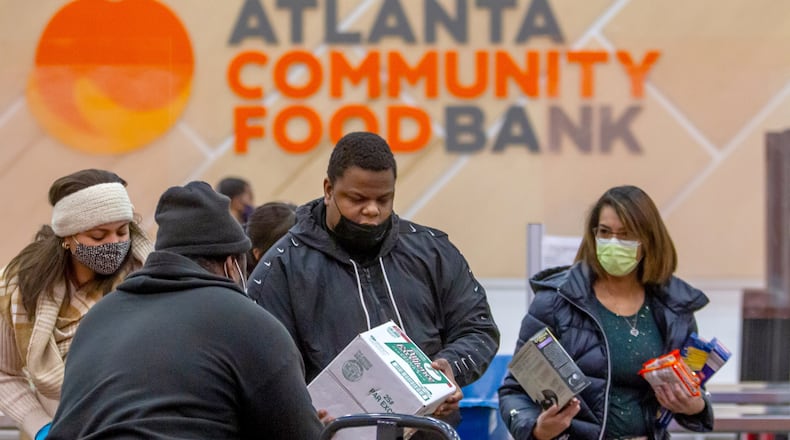Editor’s note: A story published on Feb. 22 included an incorrect dollar amount.
The Atlanta Community Food Bank is receiving millions of dollars to provide additional food and support to communities across Georgia, according to BlueHub Capital, a national nonprofit community development finance organization.
On Tuesday, BlueHub announced it’s making a $5.8 million New Markets Tax Credit investment in the Food Bank, which gives food to more than 700 nonprofits in 29 Georgia counties.
The federal New Markets Tax Credit program uses money from the U.S. Department of the Treasury to make operating capital available as low-interest loans. It’s not a donation from BlueHub, whose $543 million tax credit program supports low-income areas.
The funds will support the Food Bank’s efforts to add 81 new full-time positions, retain 159 full-time employees, and help fund the distribution of 107 million pounds of food this year, according to BlueHub.
Elyse Cherry, BlueHub Capital’s CEO, said in a statement that BlueHub wants to support the Food Bank because the Food Bank’s budgets and operations were challenged by the pandemic.
Atlanta Community Food Bank estimates more than half of the people it serves are working families that earn too much to qualify for Supplemental Nutrition Assistance Program (SNAP) benefits, but not enough to meet their basic needs with rising healthcare, housing and food costs.
Kyle Waide, the Food Bank’s president and CEO, said in a statement that their organization’s food distribution rate is up 65% during the pandemic. He said they spent $20 million on food last year.
“This investment has helped us not only offset expenses but really restore working capital so we can continue to be aggressive in responding to food insecurity in our community,” Waide said in a statement.
About the Author
The Latest
Featured



